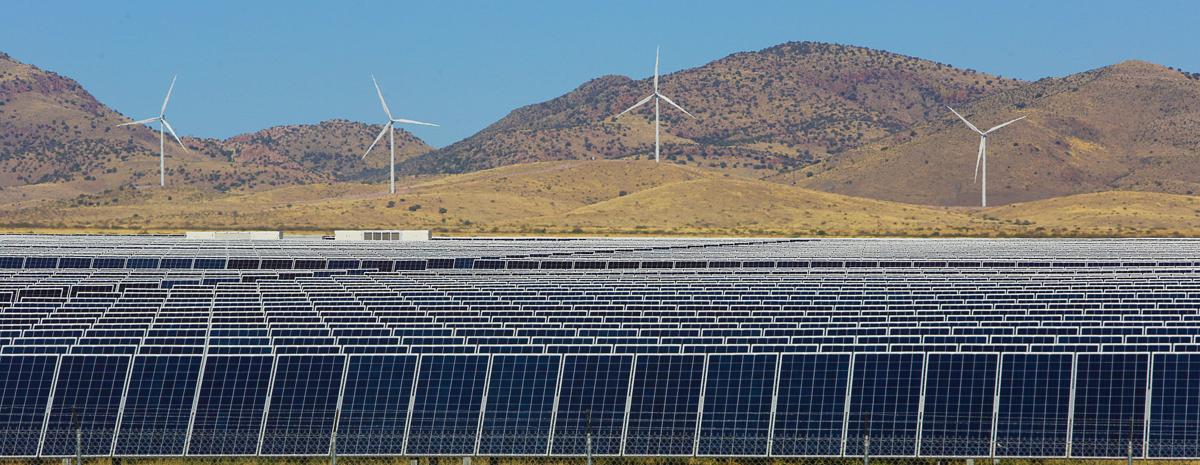The Arizona Corporation Commission on Wednesday rejected a move to require utilities to take power from qualifying renewable-energy facilities under contracts of at least 15 years, delaying the matter until formal hearings are held this fall.
Commissioner Andy Tobin had proposed the amendment to the state’s rules governing utility contracts under the federal Public Utility Regulatory Policies Act, or PURPA. The 1978 law requires a utility to buy power from smaller renewable-energy projects if their costs are lower than the utilities cost to generate or power from other sources.
Arizona’s conforming rules, adopted in 1981, do not specify a minimum length for PURPA contracts.
Tucson Electric Power Co., sister rural utility UniSource Energy Services and Arizona Public Service Co. have formally asked the Corporation Commission to limit PURPA power-purchase contracts to two years, subject to renegotiation, arguing that longer fixed-price contracts would force the utilities and their ratepayers to needlessly pay more for power.
Hearings on the utilities’ requests to limit the PURPA contract lengths are scheduled to start in mid-November, with a decision by the full commission not expected until well into 2020.
But a major PURPA solar developer and some solar-energy supporters say fixed-rate contracts of at least 15 years are needed to make the projects financially viable.
At the commission’s open meeting on Wednesday, Tobin said that failing to adopt his 15-year contract mandate would cause Arizona to miss out on some $600 million worth of potential PURPA-based solar projects that could be an economic boon to rural areas.
He said delaying the matter until after hearings this fall would jeopardize the viability of those projects, as a 30 percent federal tax credit for renewable-energy projects will start to step down for facilities that start construction on or after Jan. 1.
Tobin said input gathered from the utilities and solar developers during an informal commission workshop held in March, along with the record of the utilities’ past power-purchase agreements, should be enough to prompt regulators to act.
But representatives of TEP and APS objected, arguing any vote ahead of formal hearings would deny them their due-process rights to formally submit evidence and question witnesses.
Commission Chairman Bob Burns and members Sandra Kennedy and Boyd Dunn said they could not decide the matter without formal hearings.
“Procedurally, I think we’re on the wrong track,” Dunn said, adding that he did not want to violate commission rules against taking actions that “prejudge” other pending matters.
Burns also cited the utilities concern that they could be forced to pay for power they don’t need or want, citing moves in Idaho and other states to rein in costly PURPA contracts.
“If utilities are forced to buy power they don’t need, then some other part of the system, they need to shut down or reduce, does this create a problem with a stranded asset?” Burns said. “That would be a cost passed on to the ratepayer as well.”
Tobin’s proposal failed after Burns and Kennedy voting against it and Dunn abstained. Commissioner Justin Olson joined Tobin in favor of the proposal.
Tobin was visibly upset with the proceedings Wednesday as he participated via a teleconference link.
“This is a substantial issue, and I find it so archaic that we continue to keep finding ways to slow-walk this,” Tobin said.





